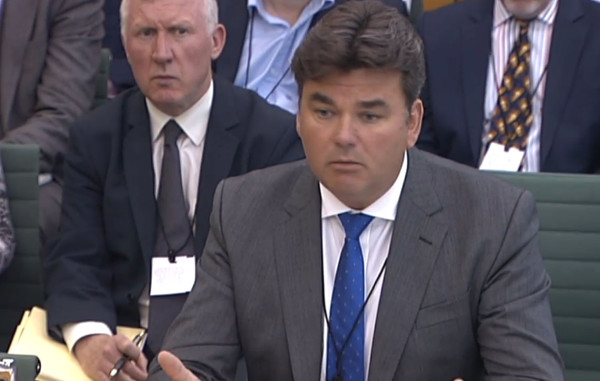

Dominic Chappell, who bought the struggling retailer from Mr Green's company Arcadia, said he was compelled to put the former High Street giant into administration in 2016 on the previous owner's insistence.
"He made it very clear if we didn't he would appoint them himself," Mr Chappell said.
"Quailifying floating charge was the weapon of mass distruction he used to force us into administration."
In English law, a qualifying floating charge is a charge which enables the holder to appoint an administrator or administrative receiver under the Insolvency Act 1986 without the need for an order of the court.
The court in Brighton heard the evidence in a case being brought against Mr Chappell by The Pension Regulator.
BHS's descent into administration put workers' pensions at risk and TPR has been investigating the issue since then.
In the end, a £363m settlement with Sir Philip was reached in February 2017 to fund a new independent pension scheme for 19,000 former BHS workers.
Mr Chappell is accused of withholding information from investigators from The Pension Regulator who were trying to work out the extent of the pension scheme's blackhole, a charge he denies.
He told Brighton Magistrates Court he could not comply with the Section 72 request for information from the regulator after the administrators locked him and his team out of the building.
Mr Chappell said he was not even offered a bin bag to collect his personal belongings from the BHS headquarters in Marylebone.
"I took me three months to retrieve my personal things from my office," he told the court.
BHS was put into administration on 25 April 2016 and a Section 72 notice was served a day later to solicitors no longer acting for Mr Chappell.
He said he had flown to North America immediately after the administrator was appointed to meet with high net worth individuals who he hoped would invest in BHS.
Mr Chappell said: "We were trying to raise significant funds quickly in order to save BHS. I don't have a detailed note of when I was made aware of it.
"When I returned from America, I was told they forwarded it to my BHS email which I did not have access to.
"I'm 99 per cent sure I had not received notification of the notice."
The next notice was served on 13 May 2016.
Asked if he had decided to refuse to supply information or neglected to supply information to TPR, Mr Chappell said: "Not at any stage. We had been assisting them right the way through and carried on.
"It never crossed my mind in the slightest not to comply with the TPR notice.
"Reaching out, appointing lawyers, getting the paper work we had access to, I can't see how that is neglecting to."
The first Sec 72 request was served 16 days after the sale on 27 March 2015.
Micheal Levy, representing Mr Chappell, asked him what effect being served with the notice so soon had on his business.
"We were devastated," he said. "We found it an outrageous act.
"We had given them every courtesy. This was a hostile and deliberate act which had a fundamental impact on our business with such a powerful document resting on the back of our company.
"It is, effectively, the last resort of The Pension Regulator prior to an action."
Mr Chappell's company Retail Acquisitions took on BHS as a turnaround project, buying it from Sir Philip Green for £1 in 2015.
A meeting was arranged with TPR the day after Retail Acquisitions took over BHS.
Mr Chappell said: "It was a professional, cordial meeting, we made good headway, gave them undertakings how we would assist them and that is how it was left.
"We had offered them every assistance to find out the true detail which had been hidden from them for the best part of a decade, the accounts of BHS."
Mr Chappell, of Clenston Manor, near Blandford Forum in Dorset, denies three charges of neglecting or refusing to provide information and documents, without a reasonable excuse, contrary to the Pensions Act 2004.
The case continues.



